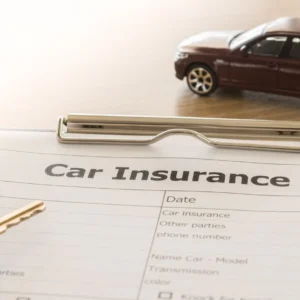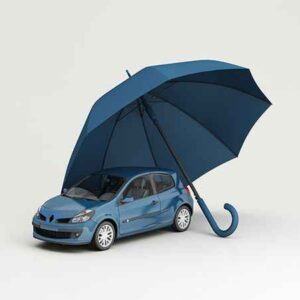Navigating the world of rental car insurance can feel overwhelming, especially if you’re unfamiliar with the nuances involved. Many travelers underestimate the importance of understanding their options, which can lead to unexpected expenses down the road. Whether you’re renting for business or leisure, knowing the ins and outs of Rental Car Insurance: What You Need to Know is essential. Getting it right can offer peace of mind while you’re on the road, allowing you to focus on enjoying your journey instead of worrying about potential mishaps.
Main Points
- Understand the different types of rental car insurance coverage available.
- Evaluate if your personal car insurance already covers rental vehicles.
- Consider the rental company’s insurance options and costs.
- Review credit card benefits related to rental car insurance.
- Be aware of the exclusions and limitations in coverage.
Understanding the Types of Rental Car Insurance: What You Need to Know
When renting a car, understanding the various types of insurance options can be a bit daunting. However, it is crucial for protecting yourself from potential financial burdens. You might feel overwhelmed by the choices, but here’s a straightforward breakdown.
Common Types of Rental Car Insurance
- Collision Damage Waiver (CDW): This covers damage to the rental car in case of an accident, limiting your liability.
- Liability Insurance: Essential for covering damages to third parties if you are at fault during an accident.
- Personal Accident Insurance: Offers medical coverage for you and your passengers in the event of an accident.
Ultimately, being informed about these options can save you both money and stress.
The Pros and Cons of Accepting the Rental Company’s Insurance Coverage
Renting a vehicle often leads to the dilemma of whether to accept the rental company’s insurance coverage. On one hand, this option provides peace of mind, ensuring that you’re protected against potential damages. However, it may also come with a higher cost compared to your personal insurance. Additionally, some policies may have restrictions that can complicate claims. Ultimately, carefully assessing your needs and existing coverage is crucial before making a decision.
Pros and Cons Overview
| Pros | Cons |
|---|---|
| Peace of mind | Higher costs |
| Comprehensive protection | Potential restrictions |
| Simplified claims process | May duplicate personal coverage |
How Your Personal Car Insurance Can Affect Your Rental Car Insurance Choices
Your personal car insurance can significantly influence your rental car insurance decisions. Many drivers assume their existing policy covers rental vehicles, but this isn’t always the case. For instance, if your policy offers collision coverage, it might extend to rentals. However, some policies have limitations, leaving you exposed. Additionally, understanding whether your policy includes liability protection for rentals can save you money and hassle. Ultimately, evaluating your own coverage is essential before making rental choices.
html
Exploring Credit Card Benefits: Do They Provide Sufficient Rental Car Insurance?
When considering rental car insurance, many travelers find themselves puzzled by the coverage offered by credit cards. These benefits can vary widely, leaving cardholders to wonder if they’re adequately protected. It’s crucial to understand the nuances involved. For instance, not all cards provide the same level of coverage. Additionally, some may exclude certain vehicles or rental locations. Thus, it’s advisable to review the specific terms associated with your credit card before embarking on your next adventure.
Key Points to Consider
- Policy Limits: Understand the maximum coverage amount provided.
- Exclusions: Check for specific exclusions that could leave you vulnerable.
- Duration of Coverage: Determine how long you’re covered while using the rental vehicle.
By examining these elements, you can confidently decide whether your credit card’s rental car insurance is sufficient for your needs.
Navigating Liability: What Happens if You’re in an Accident While Renting?
Renting a vehicle can be exhilarating, but it carries certain responsibilities. So, what happens if you’re involved in an accident while driving a rental car? First, you must consider the rental agreement. Typically, rental companies provide specific insurance options, which could cover damages. However, your personal insurance might also kick in, complicating matters. Additionally, don’t forget any local laws that pertain to vehicle accidents, as these can vary widely. In essence, navigating through the aftermath requires a clear understanding of your options and potential liability.
Understanding Your Coverage
It’s crucial to examine your own policy carefully. Some drivers discover they’re fully covered, while others realize they have minimal protection. If you lack adequate coverage, you might find yourself dealing with significant expenses. This situation can be overwhelming, especially when navigating through complex insurance jargon. Always ask questions before signing anything. Being informed is your best defense against unexpected costs arising from an accident in a rental vehicle.
Identifying Common Myths About Rental Car Insurance You Should Avoid
Many travelers hold misconceptions about rental car insurance that can lead to unnecessary expenses or inadequate coverage. For instance, some believe that their personal car insurance fully transfers to rental vehicles. However, this is not always the case, as policies may vary significantly. Additionally, another prevalent myth is that purchasing insurance at the rental desk is redundant. In reality, it could be essential depending on your circumstances. To make informed decisions, consider understanding the specifics of your coverage options.
“Ignorance of insurance details can often lead to stark financial consequences.”
Common Myths at a Glance
| Myth | Reality |
|---|---|
| Personal coverage applies to rentals | Not all policies cover rental cars. |
| Rental insurance is unnecessary | It can be crucial based on your situation. |
| All rentals offer the same insurance | Coverage varies greatly between companies. |
html
Tips for Choosing the Right Rental Car Insurance for Your Travel Needs
When planning a trip, selecting the appropriate rental car insurance can often feel daunting. The nuances can leave anyone perplexed, but understanding a few key points can simplify the process. First, assess your current coverage. Your personal auto insurance may already extend to rental cars, meaning additional insurance could be redundant. Second, consider the type of travel you’ll engage in. Urban driving often differs significantly from rural adventures. Finally, always read the rental agreement closely; hidden fees lurk in fine print.
- Compare options: Not all rental companies offer the same protection plans, so take the time to compare their offerings.
- Think about your needs: Will you be driving long distances or staying in a city where public transport is viable?
- Review local laws: Insurance requirements can vary by location, influencing your decisions significantly.
Conclusion
In conclusion, navigating the maze of rental car insurance can feel overwhelming, but it doesn’t have to be. By understanding the basics and knowing what to look for, you can make informed decisions that best suit your needs. Rental Car Insurance: What You Need to Know is more than just a checklist; it’s about protecting yourself and your finances while driving a rental vehicle. Always take the time to read the fine print and ask questions if something isn’t clear. After all, when you’re on the road, peace of mind is invaluable. So, the next time you’re renting a car, remember that a little preparation can go a long way in ensuring a smooth and stress-free experience. Safe travels!
Frequently Asked Questions
Do I need rental car insurance if I already have personal auto insurance?
It depends on your personal auto insurance policy. Many policies extend coverage to rental cars, but it’s important to check with your insurance provider to confirm.
What is the difference between collision damage waiver (CDW) and liability insurance?
Collision damage waiver (CDW) covers damage to the rental car itself, while liability insurance covers damages you may cause to other people or property.
Can I decline rental car insurance offered by the rental company?
Yes, you can decline rental car insurance if you have adequate coverage through your personal auto insurance or credit card. However, make sure to review the terms to ensure you are fully covered.
What happens if I get into an accident while driving a rental car?
If you get into an accident, you should contact the rental company and your insurance provider immediately. Depending on your coverage, you may be responsible for the deductible or any additional costs not covered by your insurance.
Is it advisable to purchase additional insurance from the rental car company?
It can be advisable, especially if you do not have adequate coverage through personal insurance or credit cards. Evaluate your current coverage and consider your risk tolerance before making a decision.





